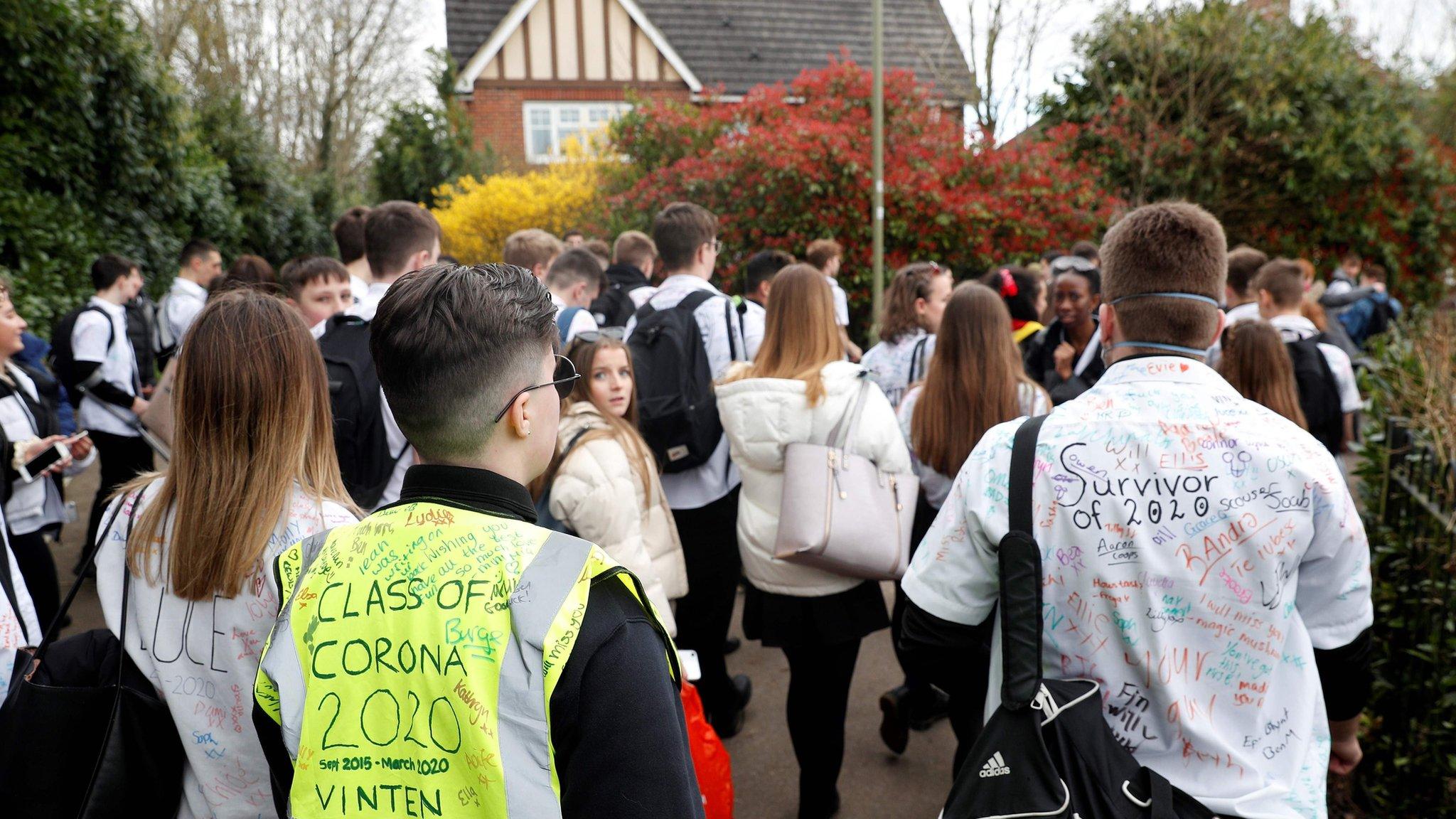Coronavirus: Parents heed calls not to send children to school
- Published
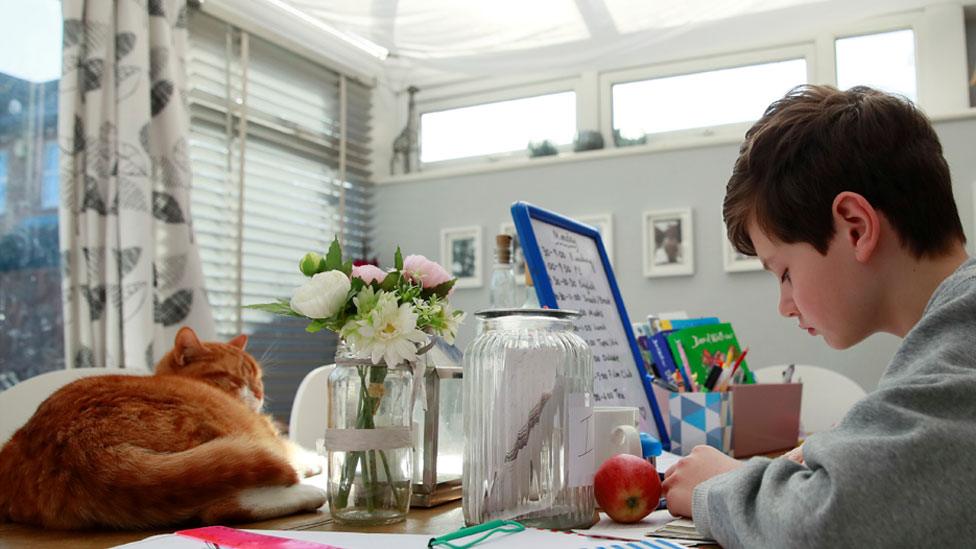
For most children the school day is now at home and online
Parents have heeded warnings not to send children into school unless it was a last resort, say head teachers.
Schools in the UK have closed to reduce the spread of coronavirus - and are only open to look after the children of "key workers" and vulnerable children.
Early snapshot surveys suggested schools had between 1% and 20% of pupils attending.
The Department for Education welcomed that numbers in school were "low" and that parents had kept children at home.
There had been fears too many pupils would turn up and that schools with depleted numbers of teachers would struggle to cope.
But Geoff Barton, leader of the ASCL head teachers' union, said the numbers at school appeared to be "manageable".
He said parents appeared to have "heeded calls to use the emergency provision in schools only in the event that they are key workers who have no option available to keep their children at home".
This was supported by a snapshot survey from the National Association of Head Teachers, with members in England, Wales and Northern Ireland, showing that:
in 94% of schools no more than 20% of pupils had attended.
A separate survey from the ASCL union, also of England, Wales and Northern Ireland, showed even lower numbers, with:
fewer than 10% of pupils in the "vast majority" of schools
most schools had between 1% and 5% pupils attending
This is only the first day for such emergency childcare cover and a full picture will take time to emerge, but the early reports might allay concerns that families would continue to send their children to school.
"It appears that the vast majority of families have responded to our appeal not to send their children to school, and we thank them for that," said Paul Whiteman, the NAHT's general secretary.
Children have been told to stay at home across the UK.
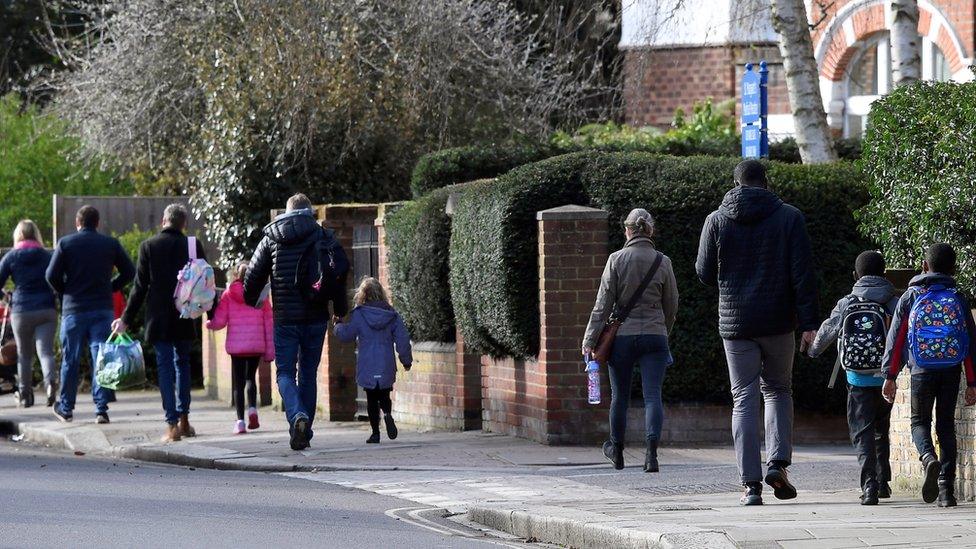
Most children had their last day of school on Friday until further notice
Keeping schools open to look after the children of key workers - such as NHS, emergency or transport staff - is intended to help parents keep going to work and to maintain essential services.
Mary Bousted, joint general secretary of the National Education Union, has called for virus testing for all staff in schools that remain open.
"This is no time for half-measures," said Dr Bousted, who said staff who were vulnerable, or who had vulnerable family at home, should not be put at risk by being in school.
The government has closed all schools, but what does that mean for exams, and who can still go in?
Gavin Williamson, England's Education Secretary, said: "Early indications are that the number of children attending school today is low, and we thank parents for making the right choice and playing their part in our fight against coronavirus.
"People must do everything they can to stay at home, protect the NHS and save lives."
In Wales, Education Minister Kirsty Williams had called on key workers to "think very carefully" before sending their children to school.
Northern Ireland's Education Minister, Peter Weir, said children should only attend school if there was "no other viable option" for their care.

The first morning of a new type of school
For those children starting their week at home, schools have been putting lessons and coursework online so that pupils can keep up with their studies.
At Hampton Hill Junior School in Richmond, London, staff have had emergency training sessions in how to use an online learning system and all children were issued with a log-in so they can work from home.
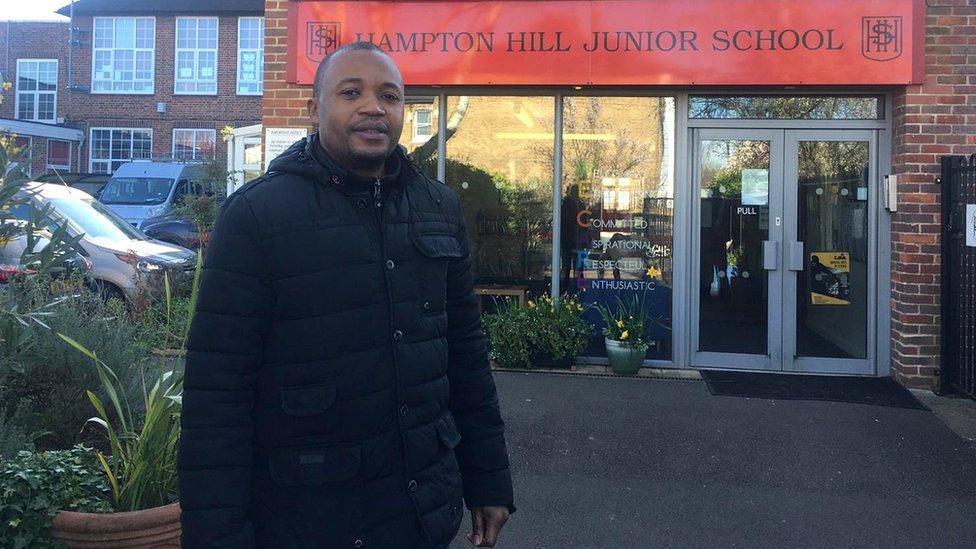
It was a new type of school drop-off for parents of some children at Hampton Hill Junior
"We'll be remotely available to answer any questions," Tracey Bannister, the school's special educational needs co-ordinator, told the BBC.
Ms Bannister said the mood in school, which is open for key workers' children and vulnerable children, is sombre.
"I think it's a very different mood this morning," she said.
"In the staff meeting, we all sat further apart - there is definitely a different mood and maybe trepidation."
Pradeep Shetty, a carer whose daughter is eligible to attend school, says the current situation is difficult for everyone - for those who will be at home and those still coming to school.
Mr Shetty says those children who have come to school will soon find it is very different from a regular timetable.
"It's hard for them to take as well - it's not a normal thing, just to be here without their friends."
Amy Arnold, head teacher at Barnham Church of England primary school in Suffolk, says staff are trying to create fun activities outdoors for those pupils who have come to school, such as den building, to limit physical contact.
"We're working hard to keep the children a safe distance apart - inevitably that poses some problems because some of the children are five years old and so they're finding this tricky to understand."
At Enniskillen Royal Grammar School in County Fermanagh, in Northern Ireland, principal Elizabeth Armstrong said a "small number of pupils" were in school on Monday morning.

Who are "key workers"?
The full list, external includes:
Frontline health workers such as doctors and nurses
Some teachers and social workers
Workers in key public services including those essential to the justice system, religious staff and public service journalists
Local and national government workers deemed crucial to delivering essential public services
Workers involved in food production processing, distribution, sale and delivery
Public safety workers including police, armed forces personnel, firefighters and prison staff
Essential air, water, road and rail transport workers
Utilities, communication and financial services staff, including postal workers and waste disposal workers


A SIMPLE GUIDE: What are the symptoms?
AVOIDING CONTACT: Should I self-isolate?
LOOK-UP TOOL: Check cases in your area
MAPS AND CHARTS: Visual guide to the outbreak


Are you now homeschooling your children? Share your experiences by emailing haveyoursay@bbc.co.uk, external.
Please include a contact number if you are willing to speak to a BBC journalist. You can also contact us in the following ways:
WhatsApp: +44 7756 165803
Tweet: @BBC_HaveYourSay, external
Please read our terms & conditions and privacy policy
- Published23 February 2022
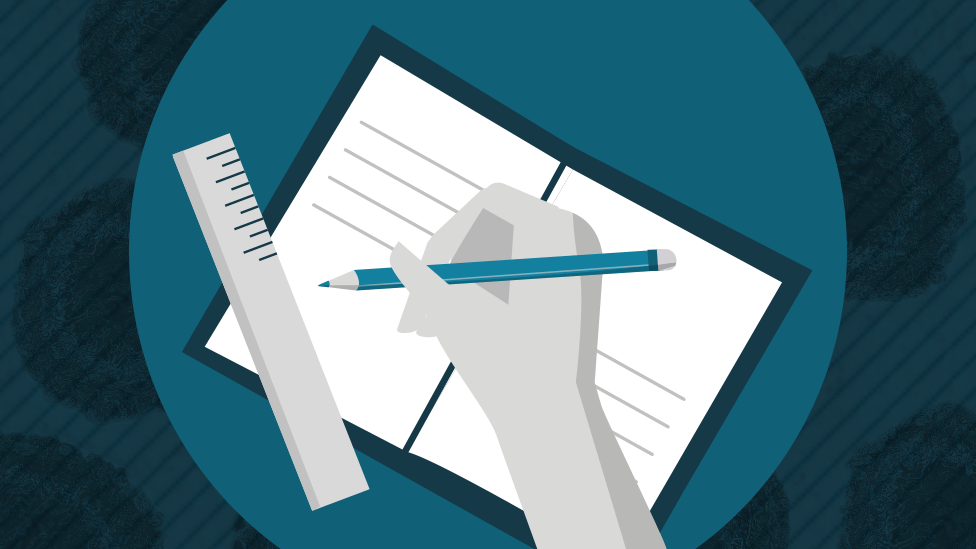
- Published20 March 2020

- Published20 March 2020
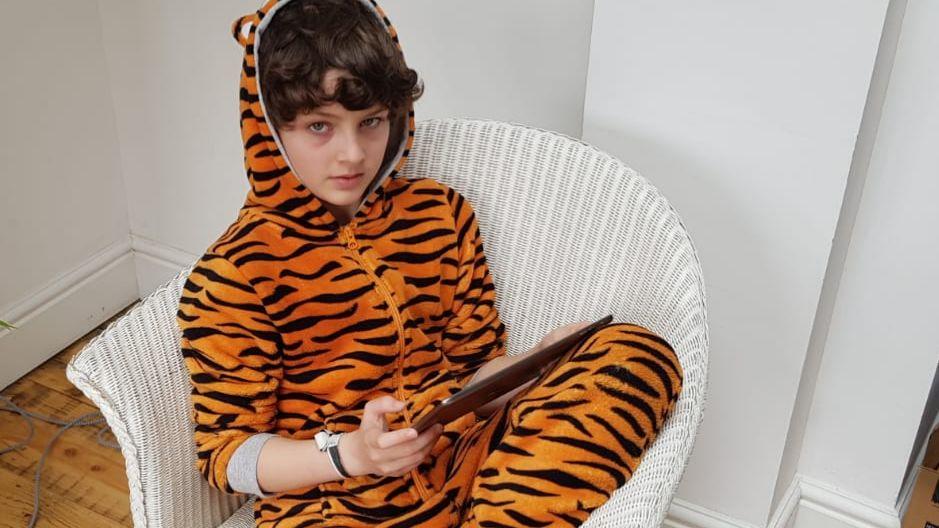
- Published20 March 2020
